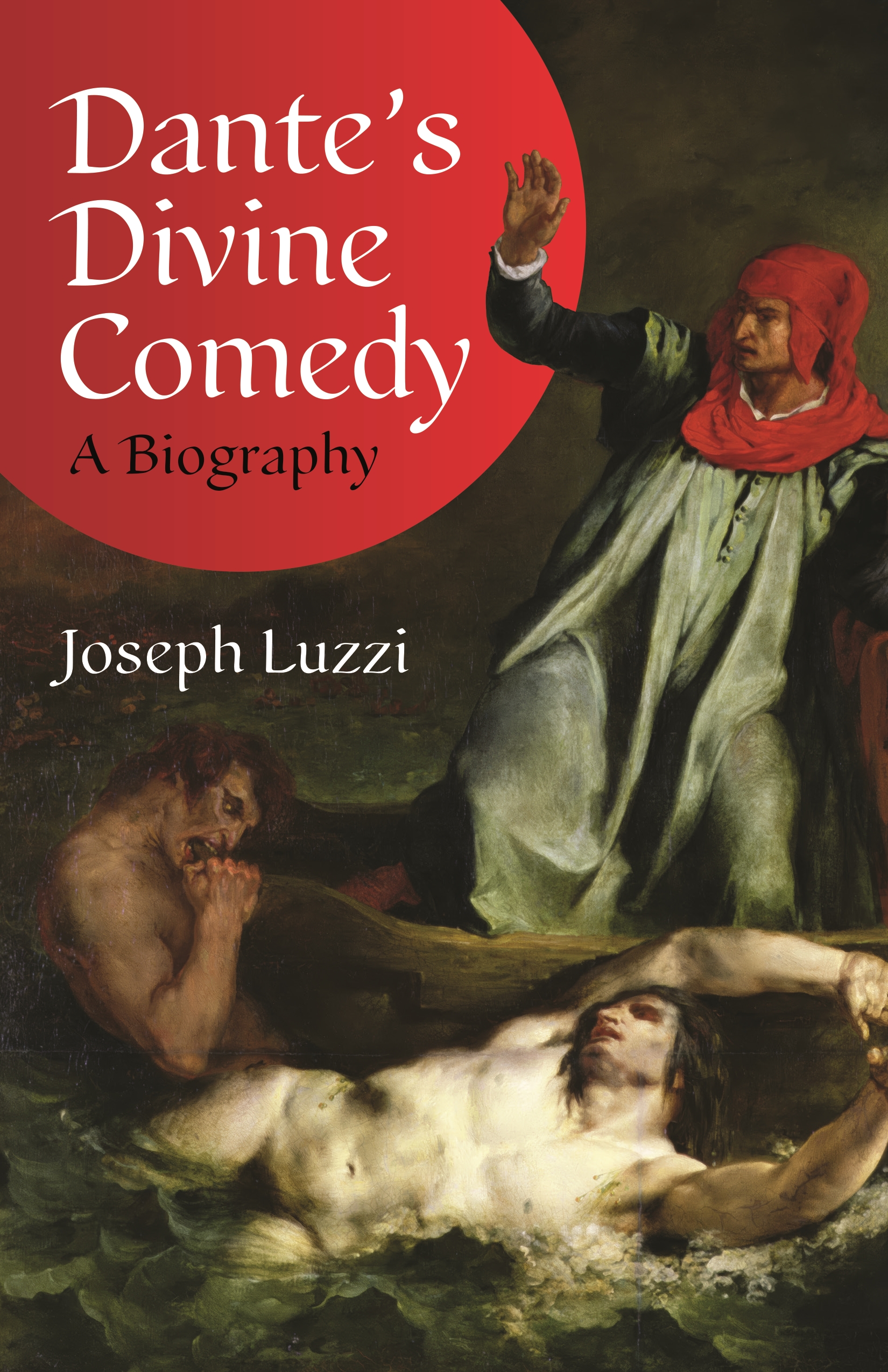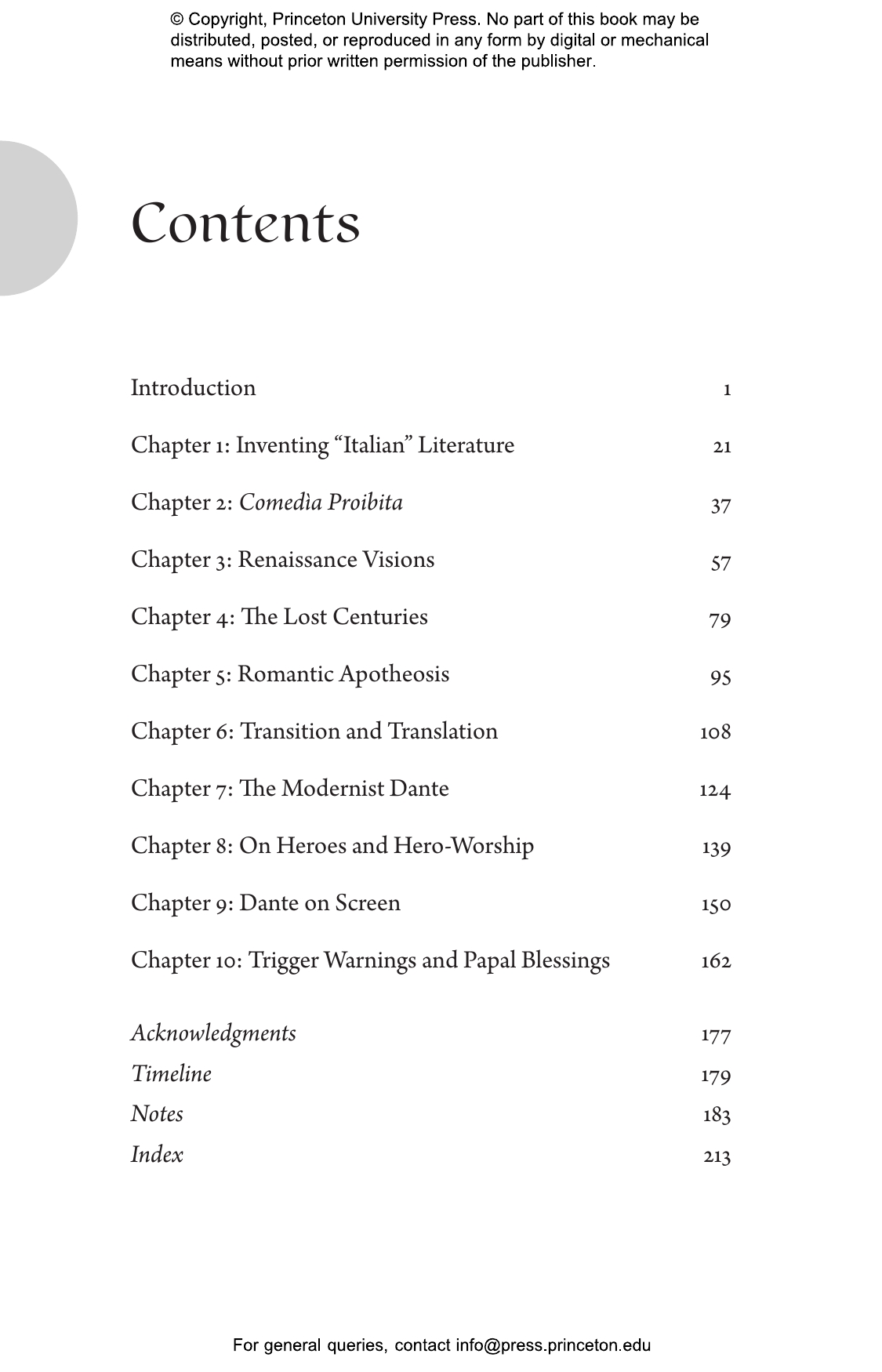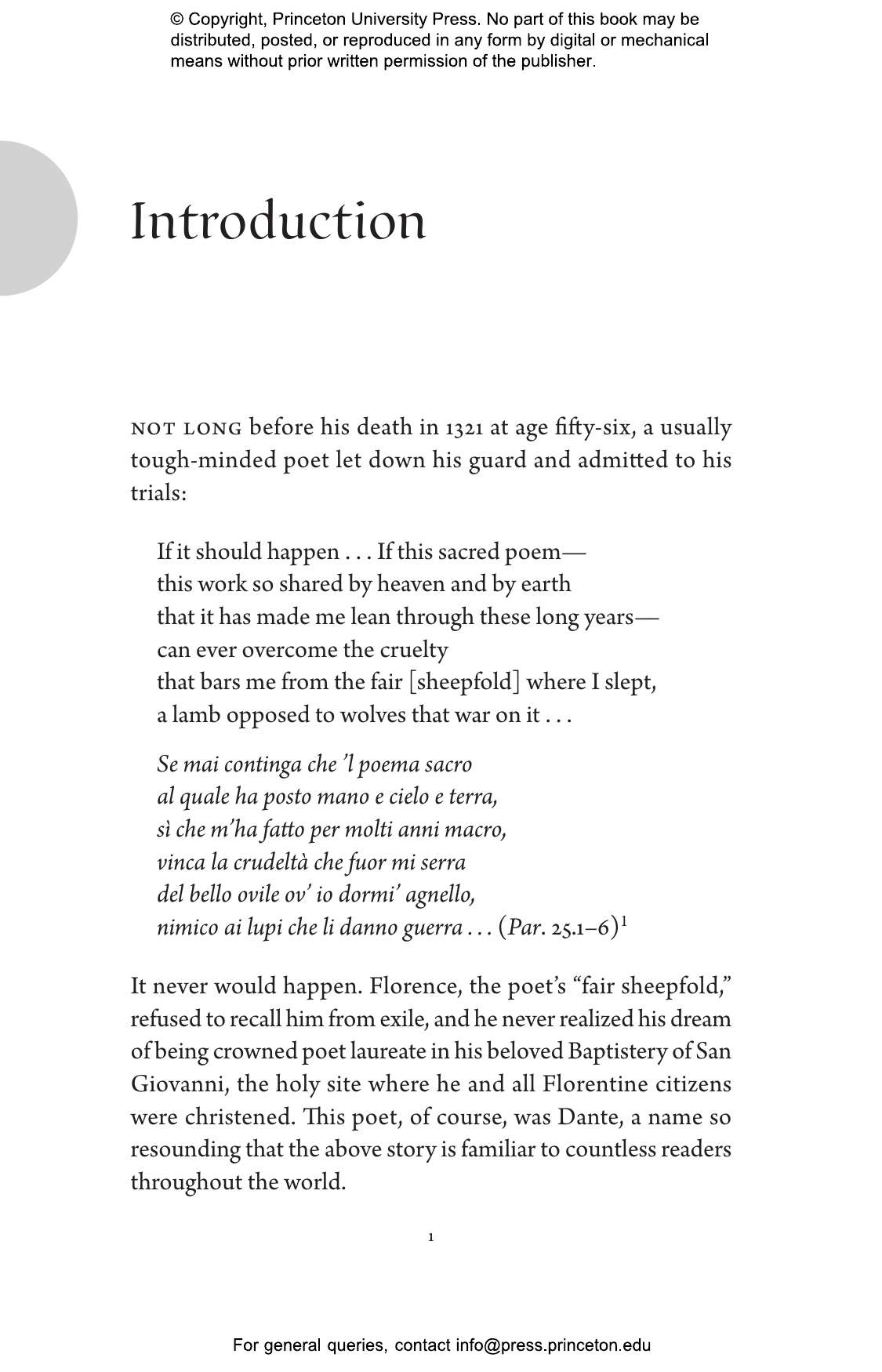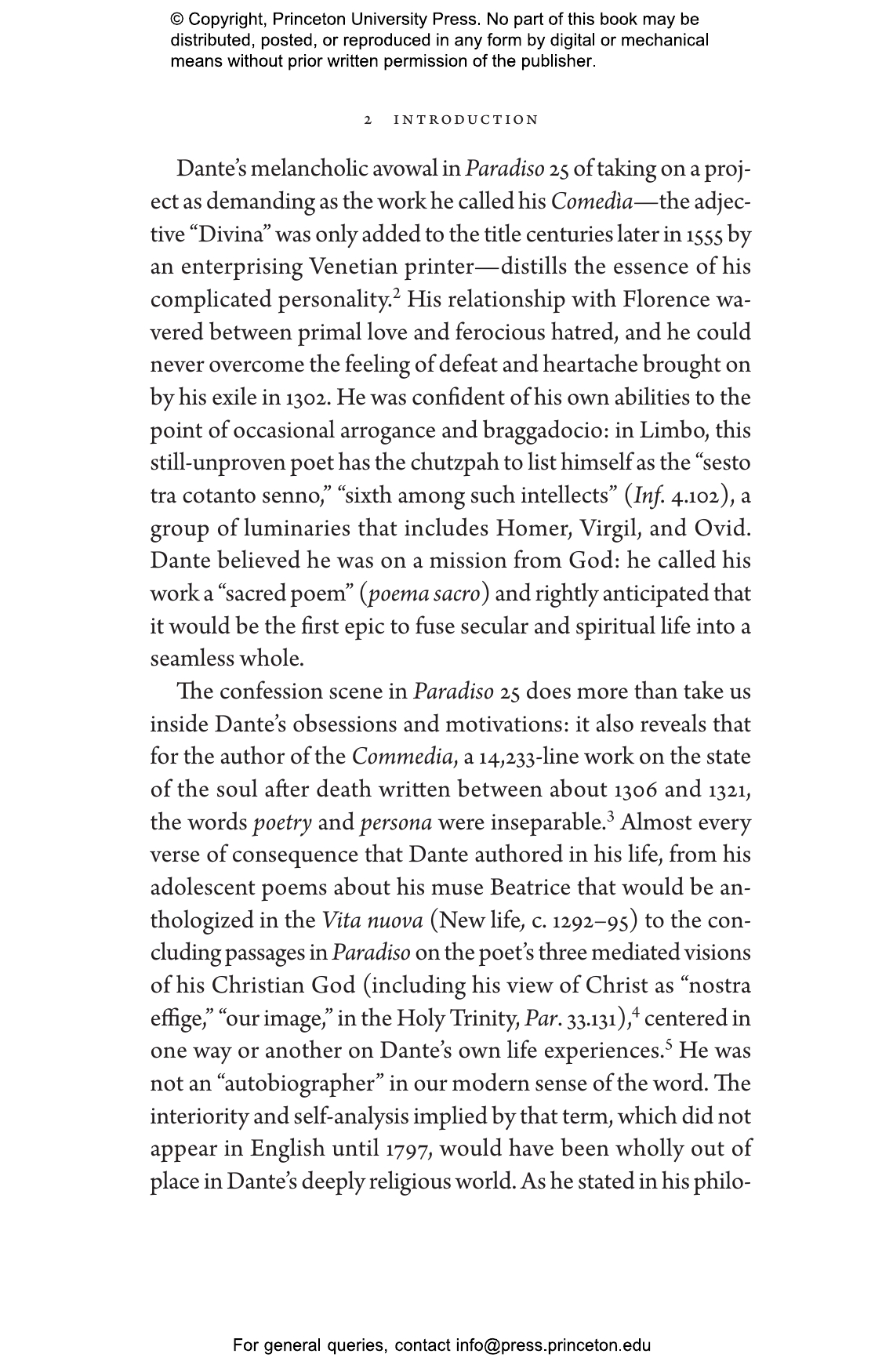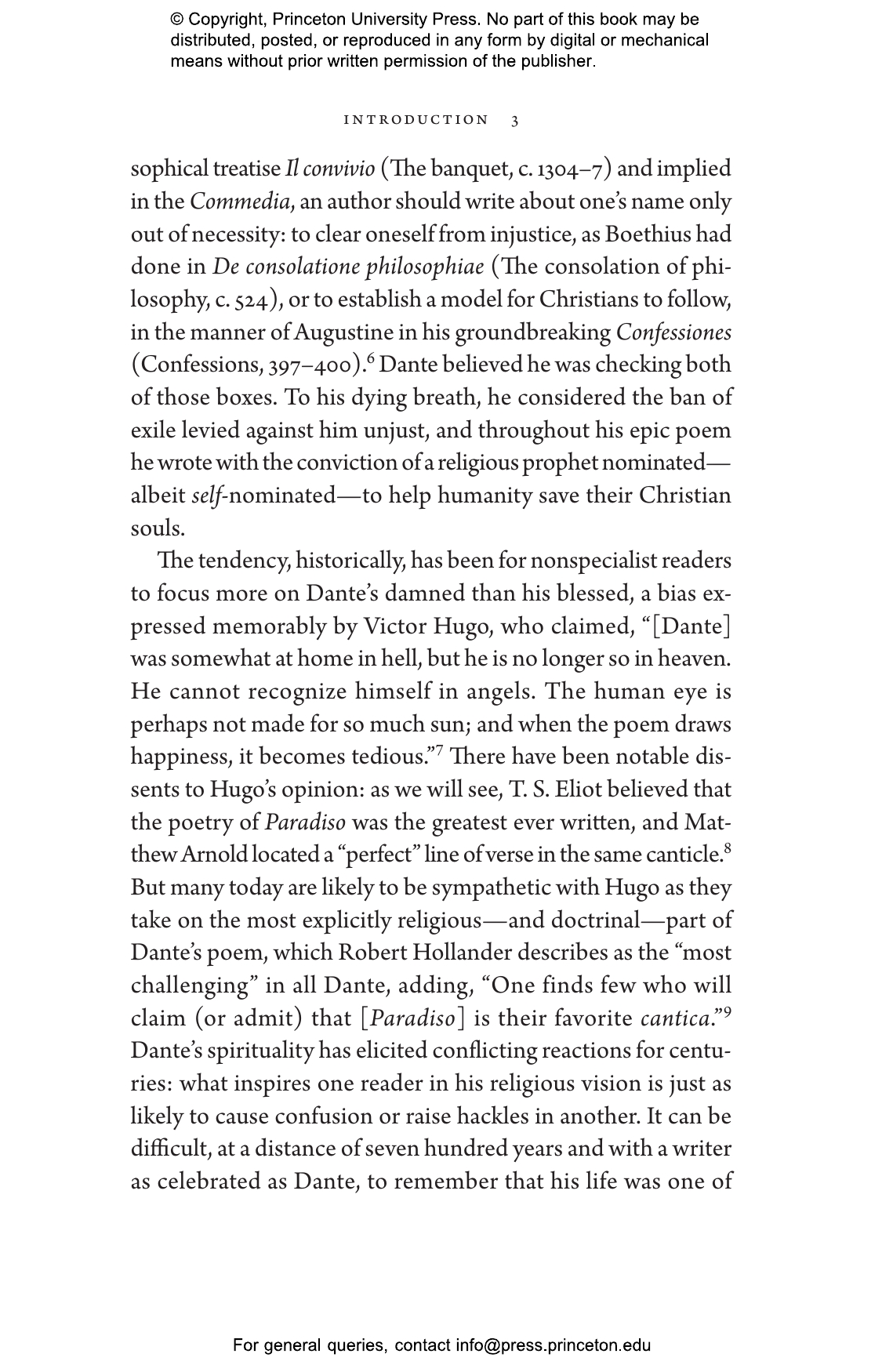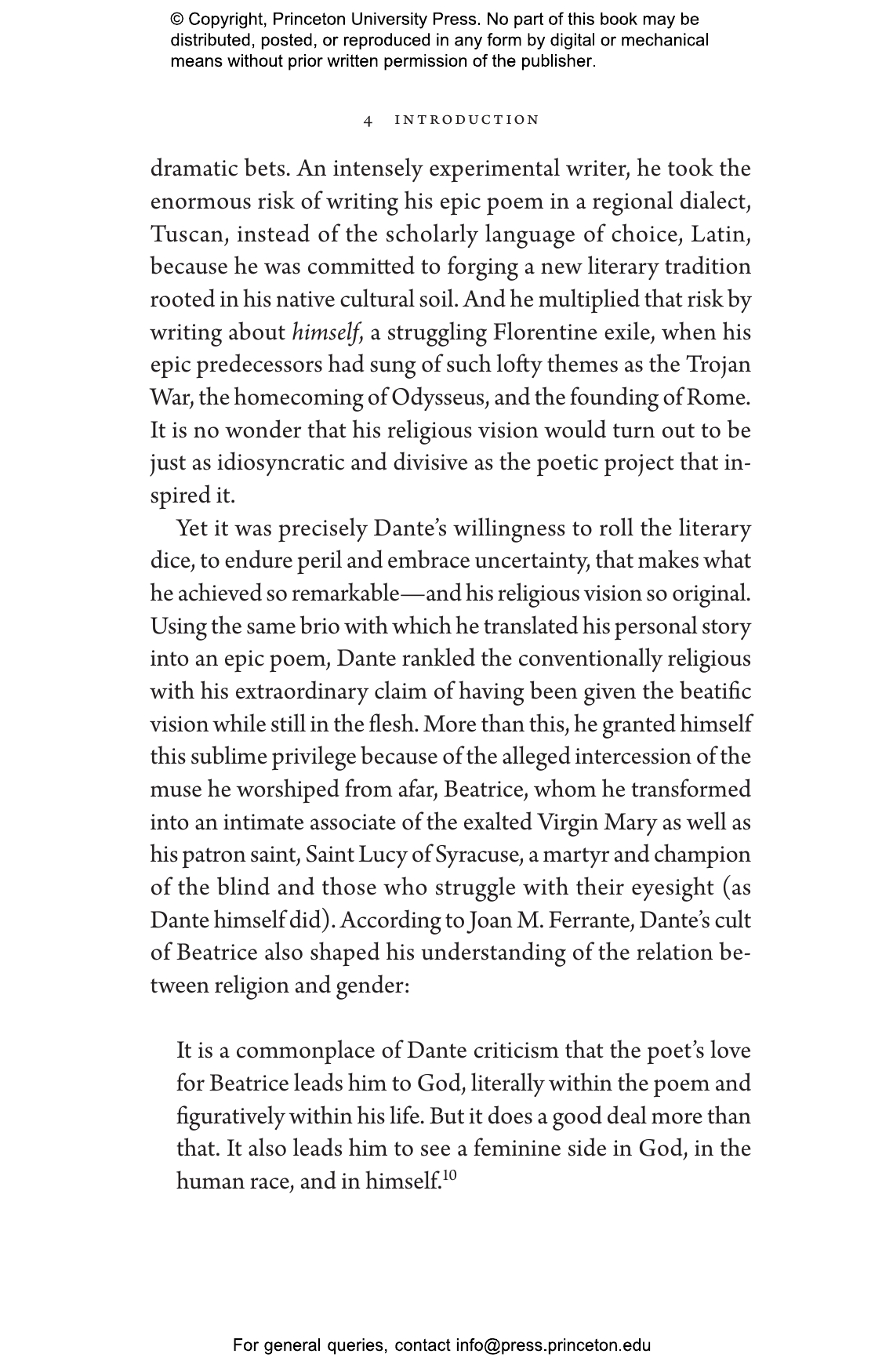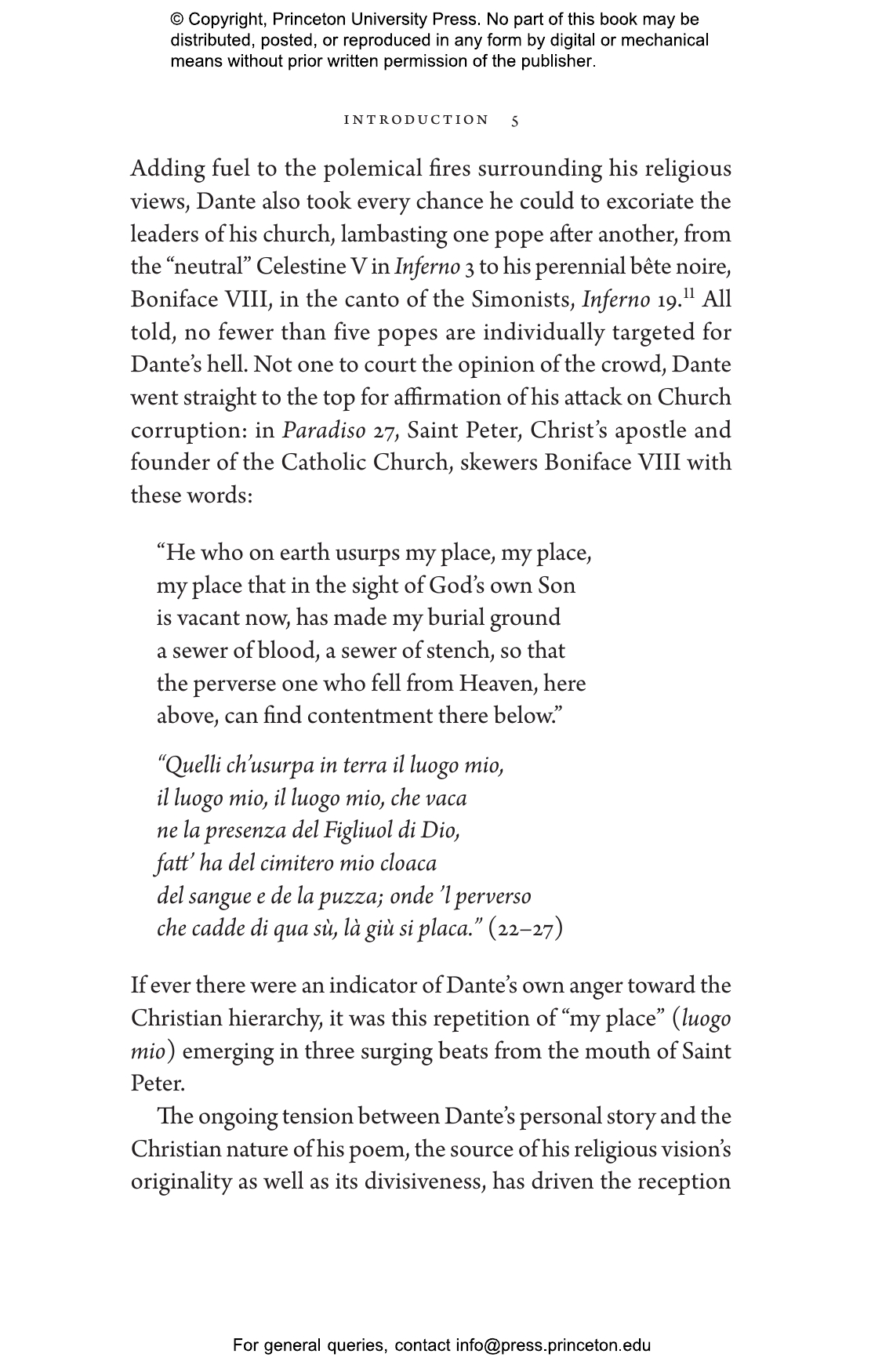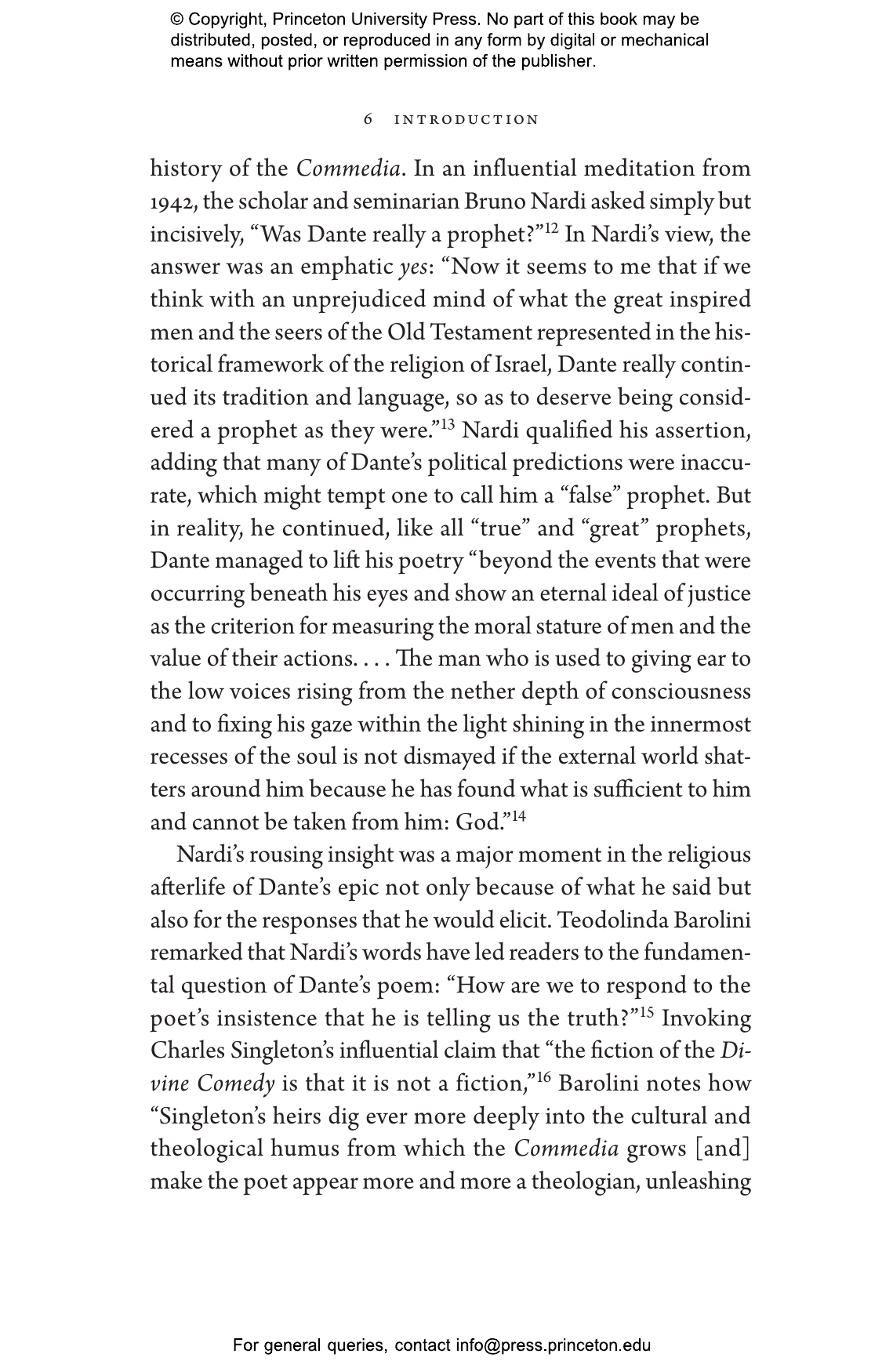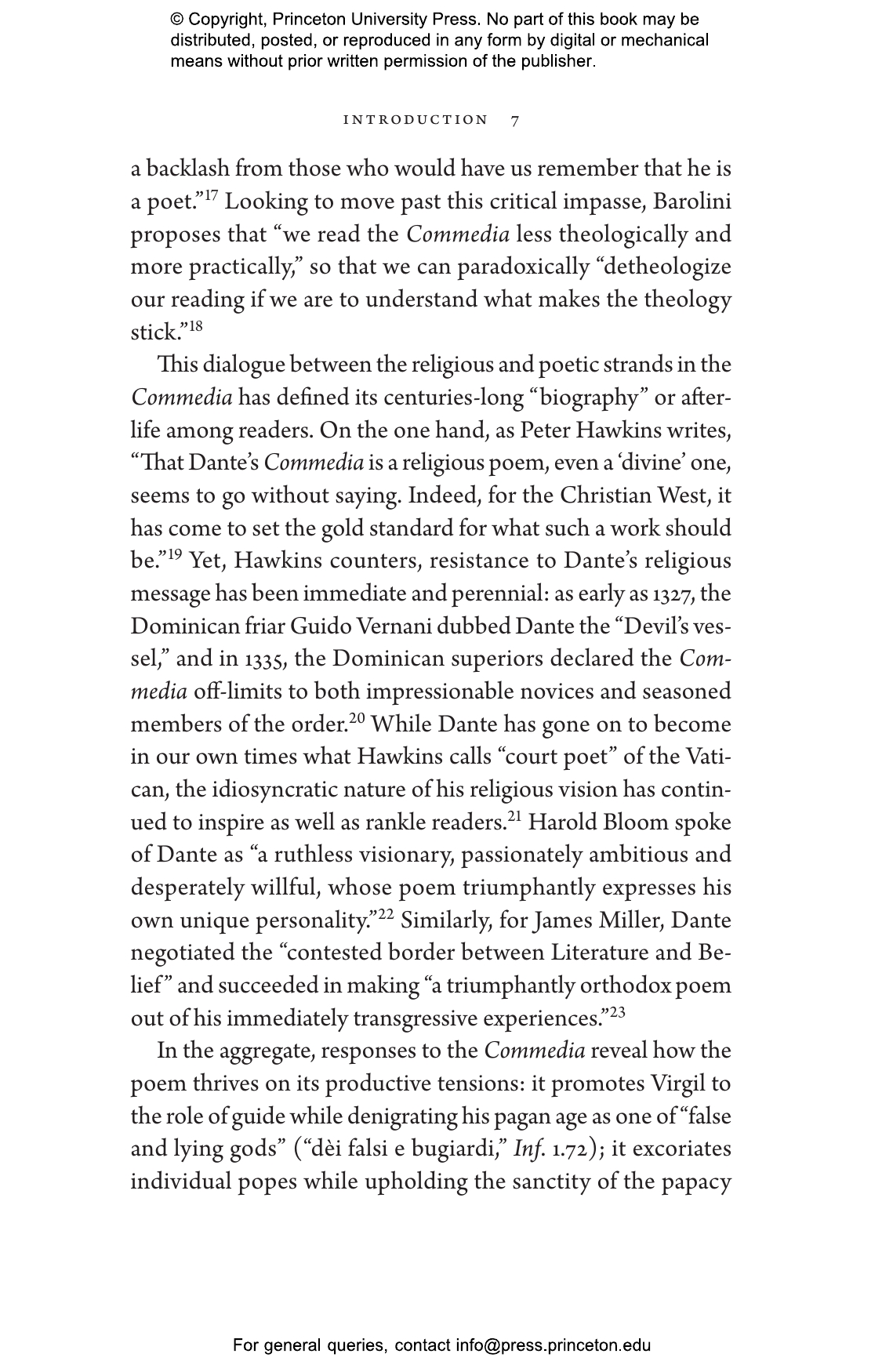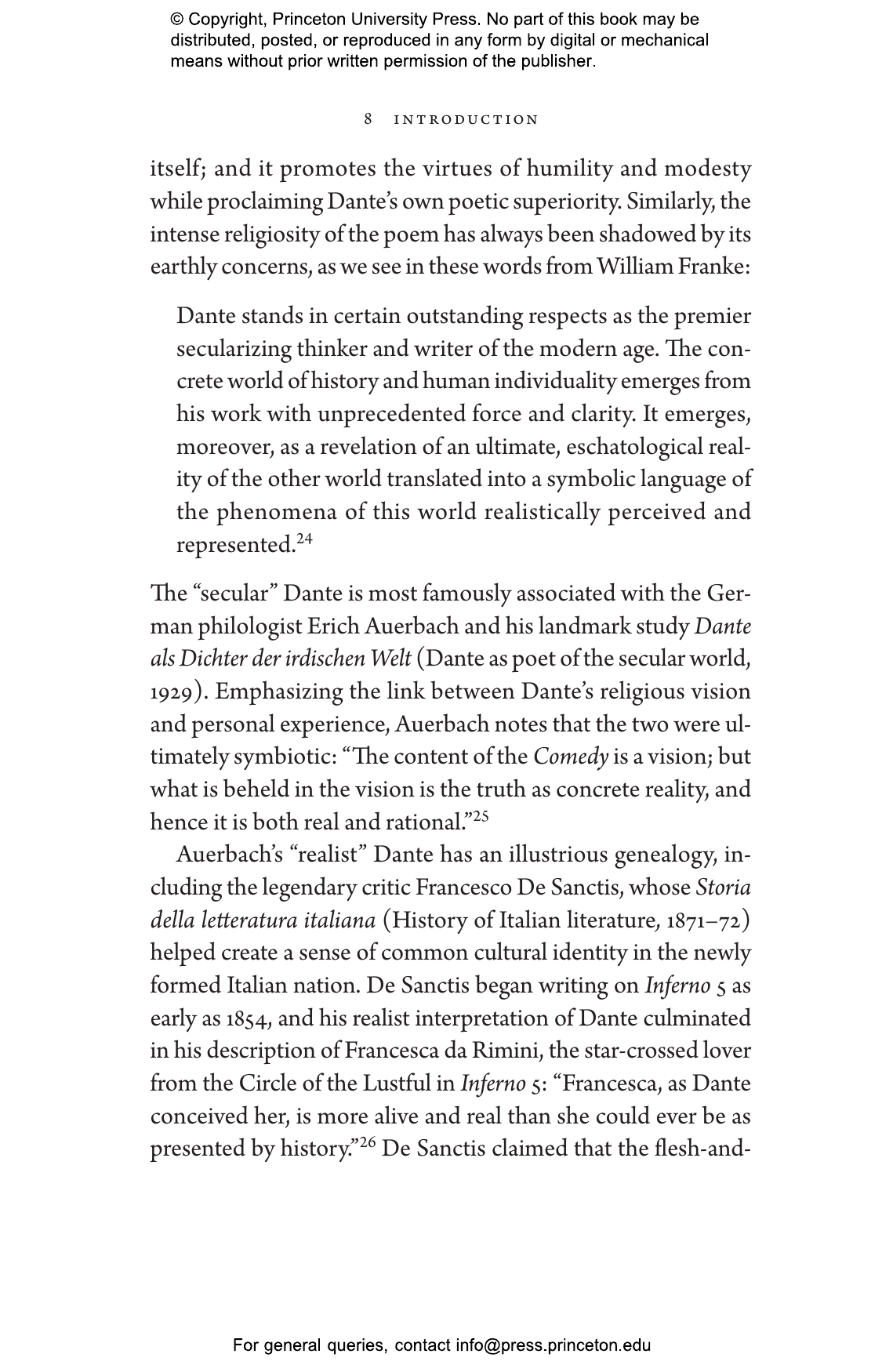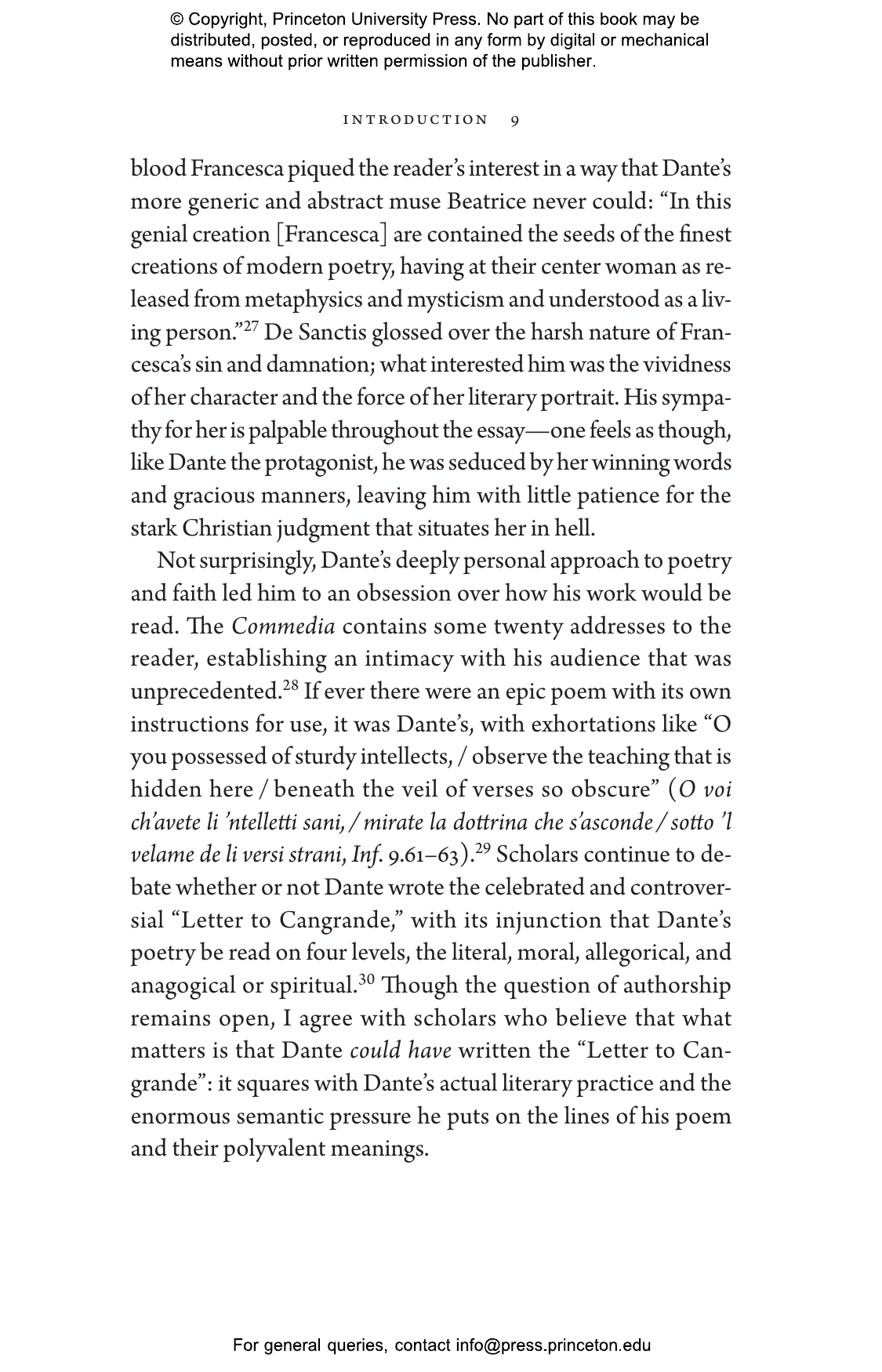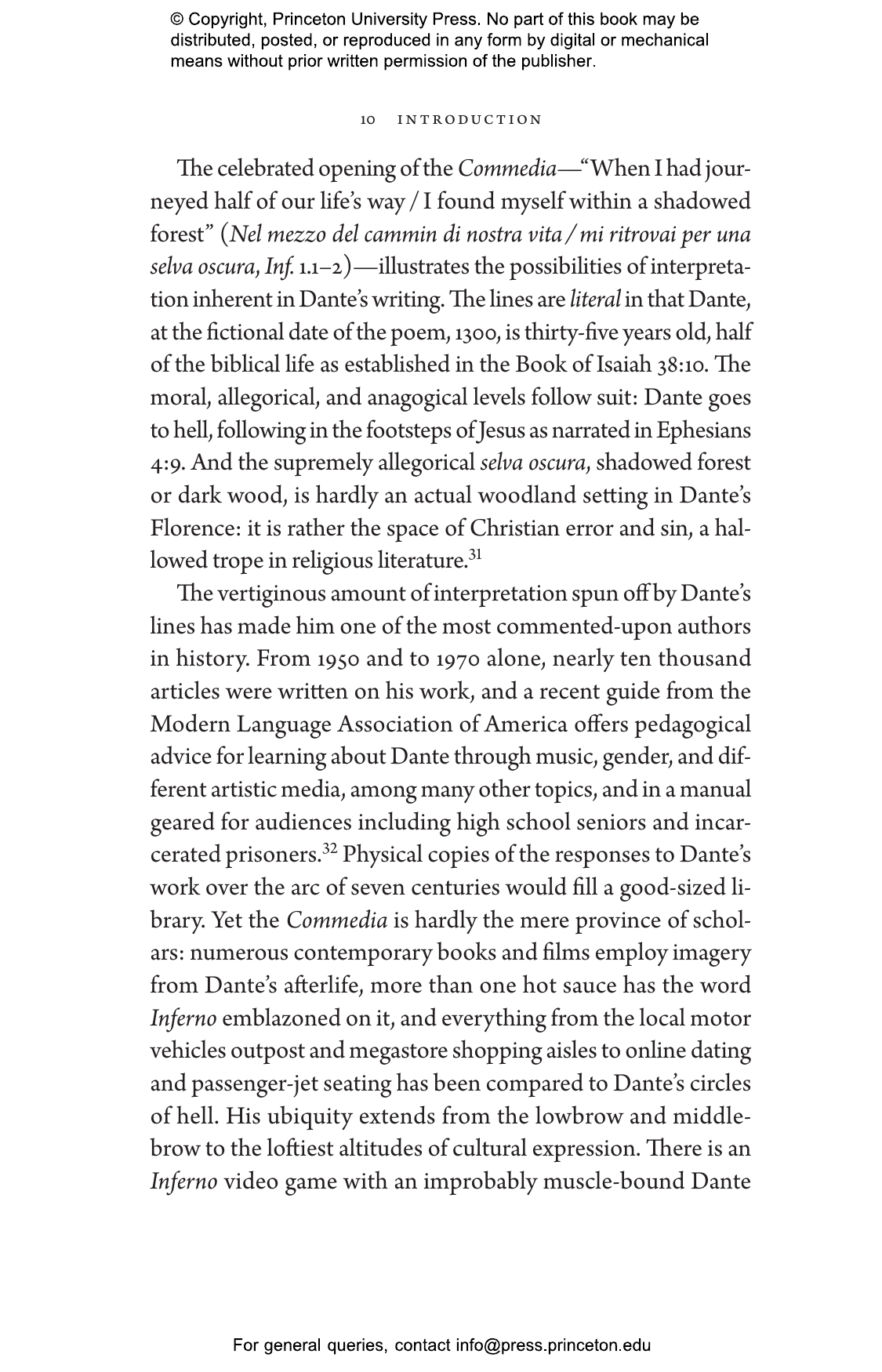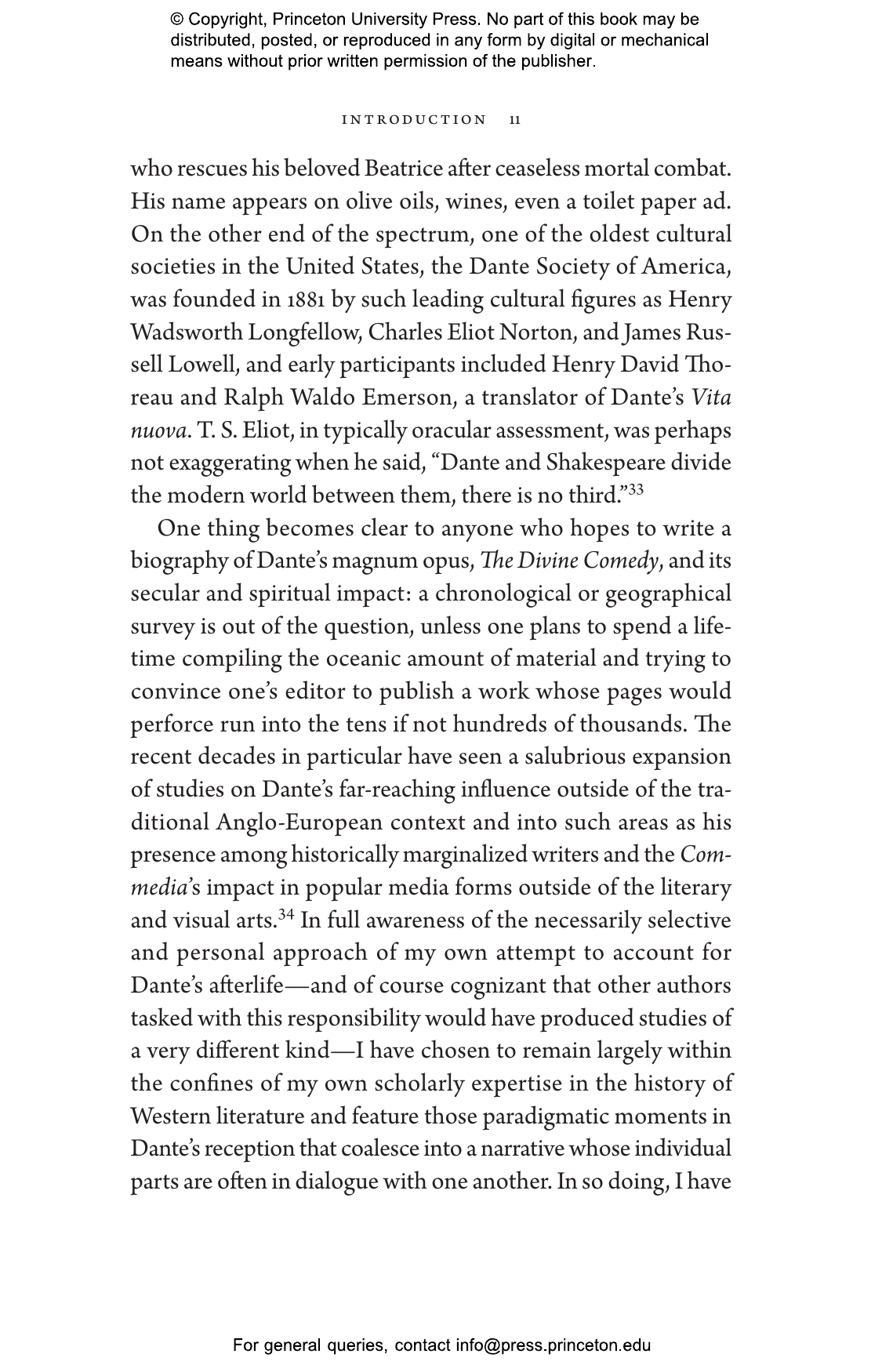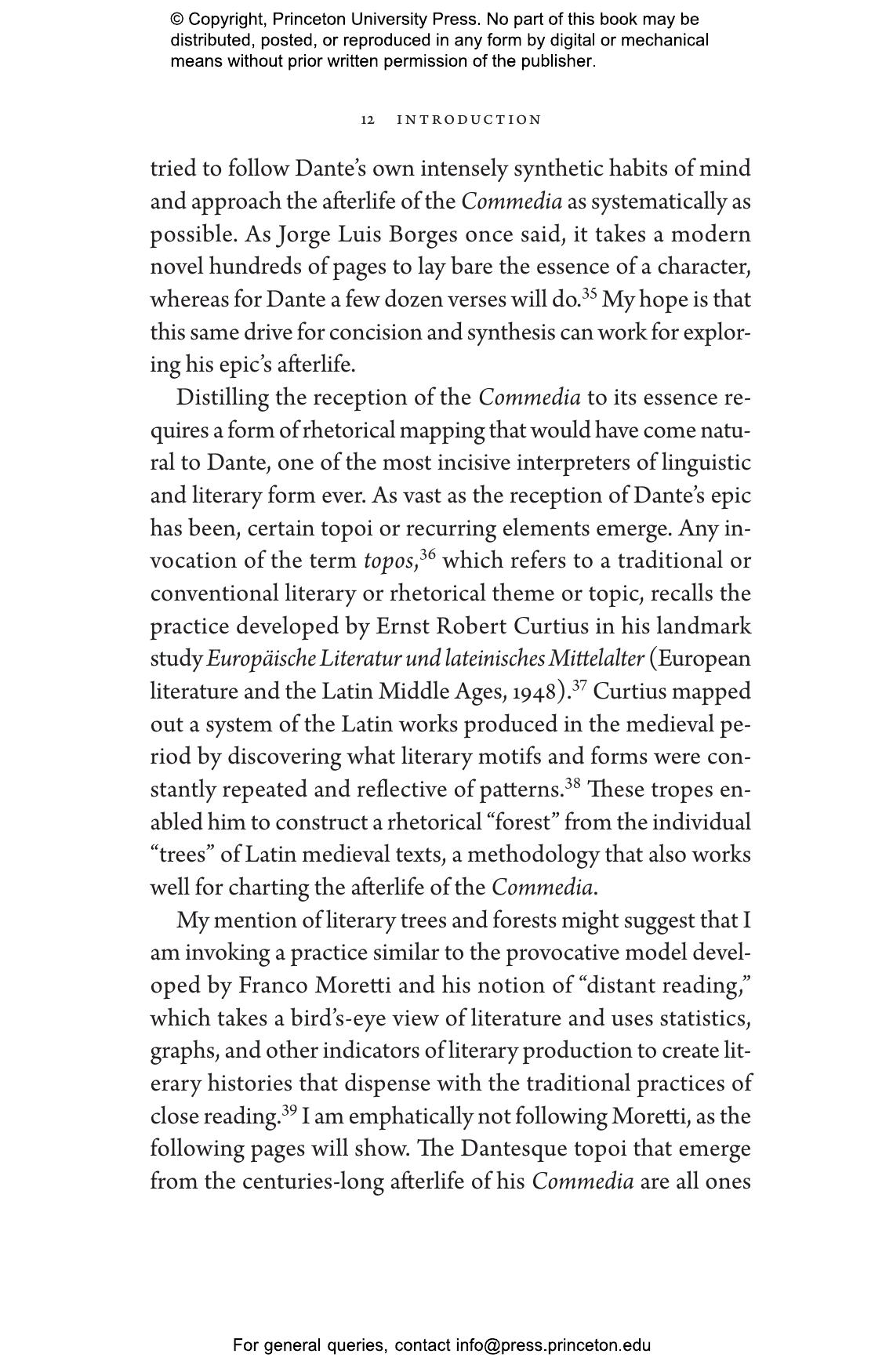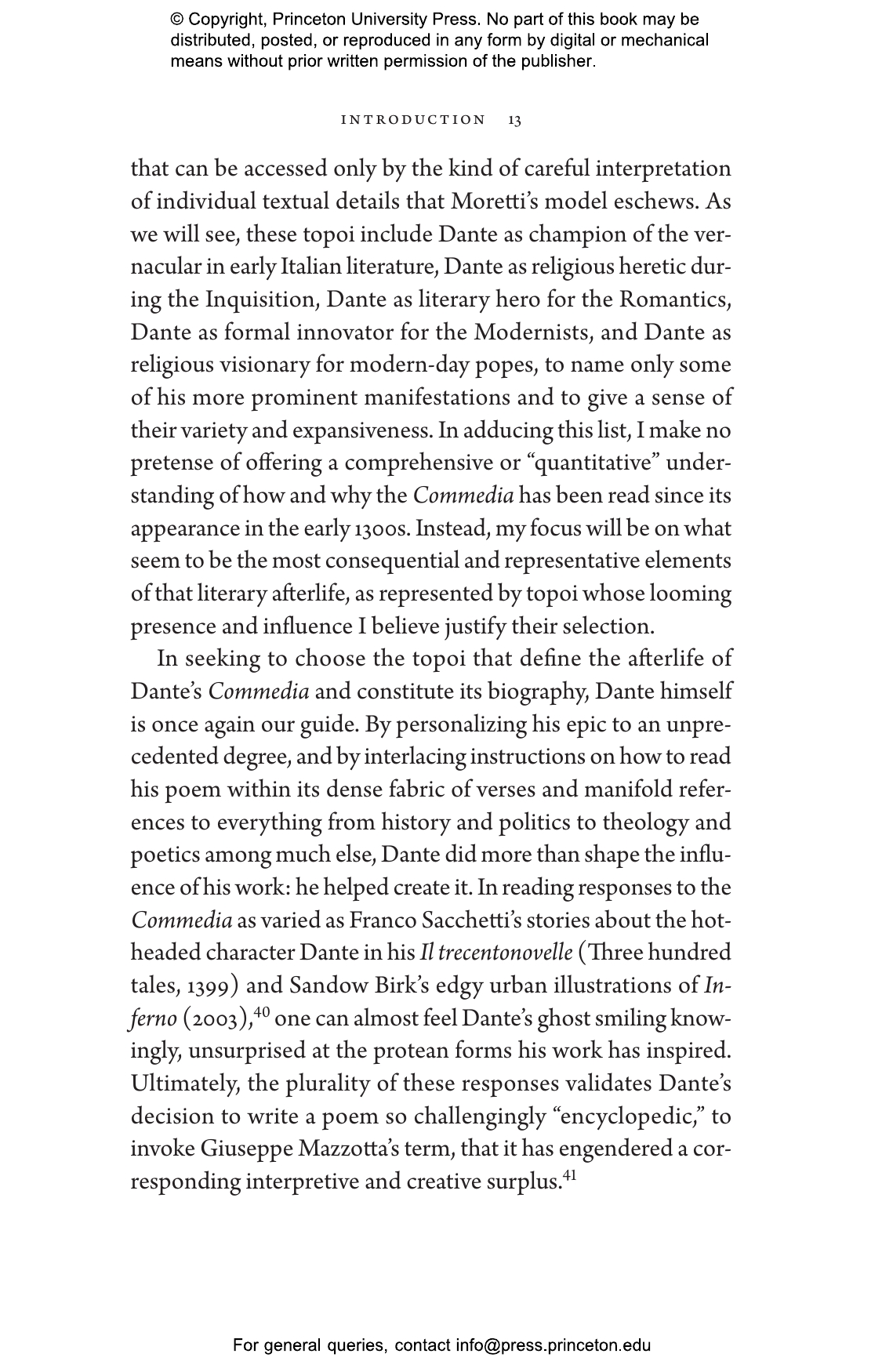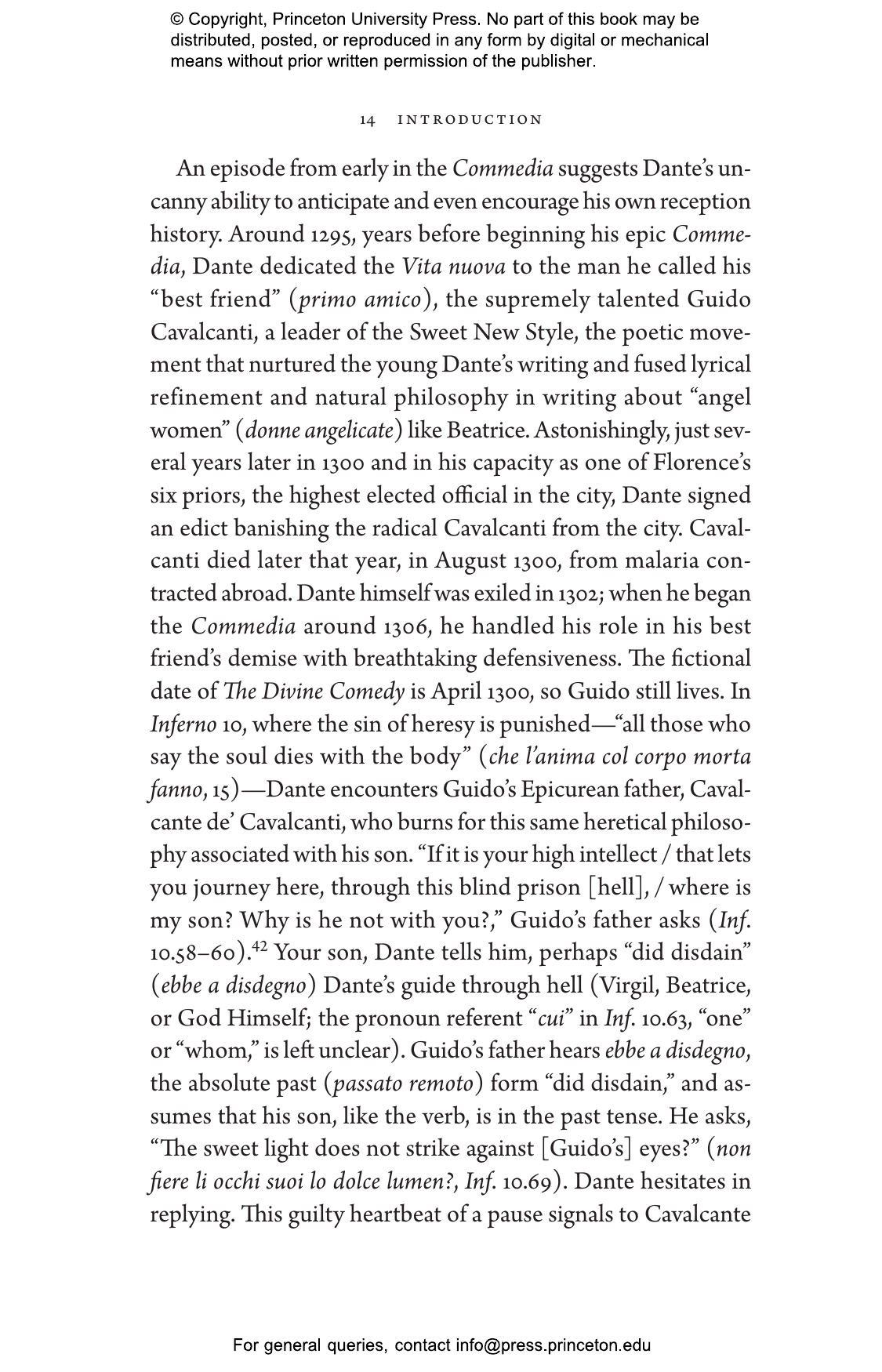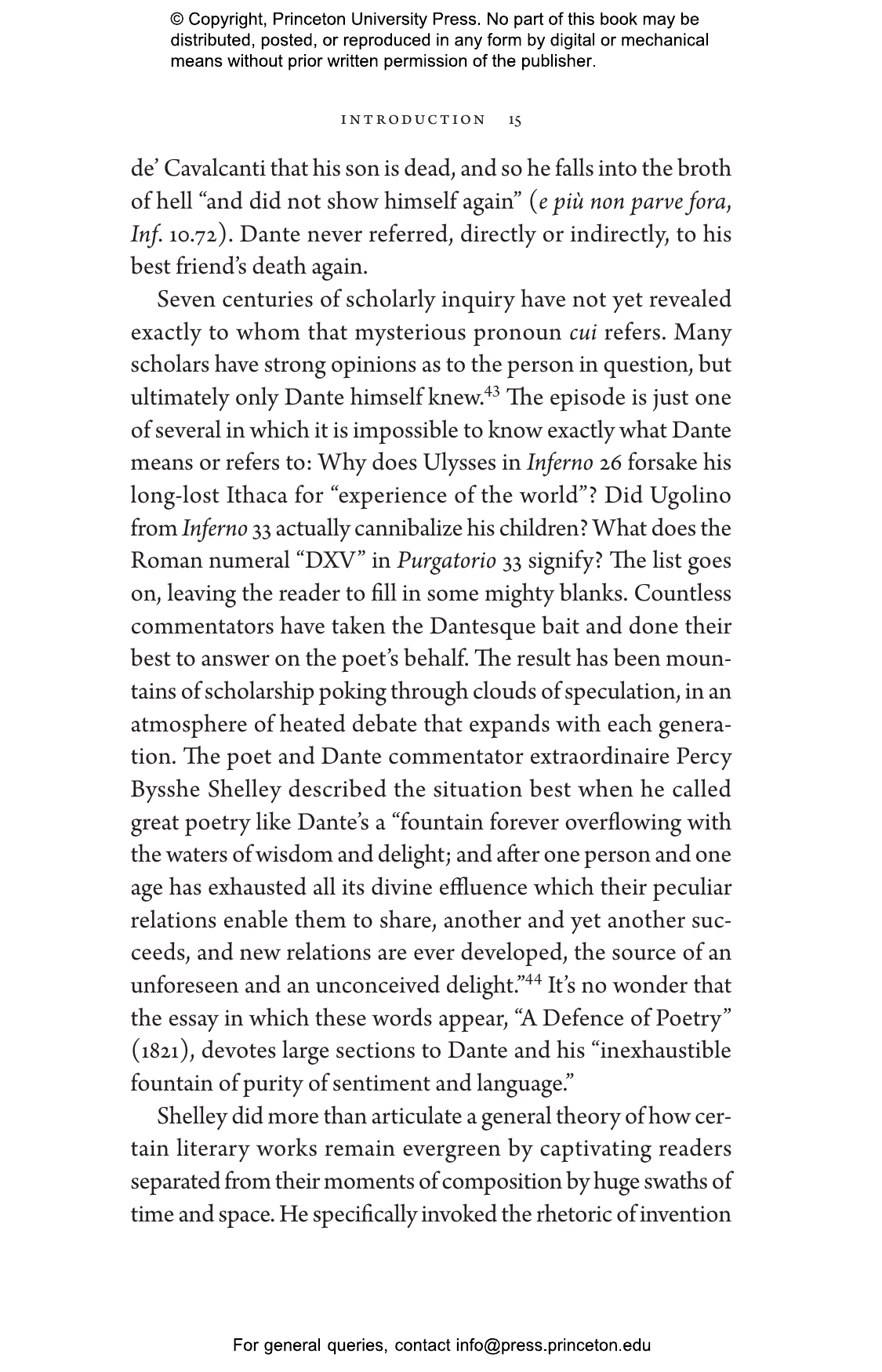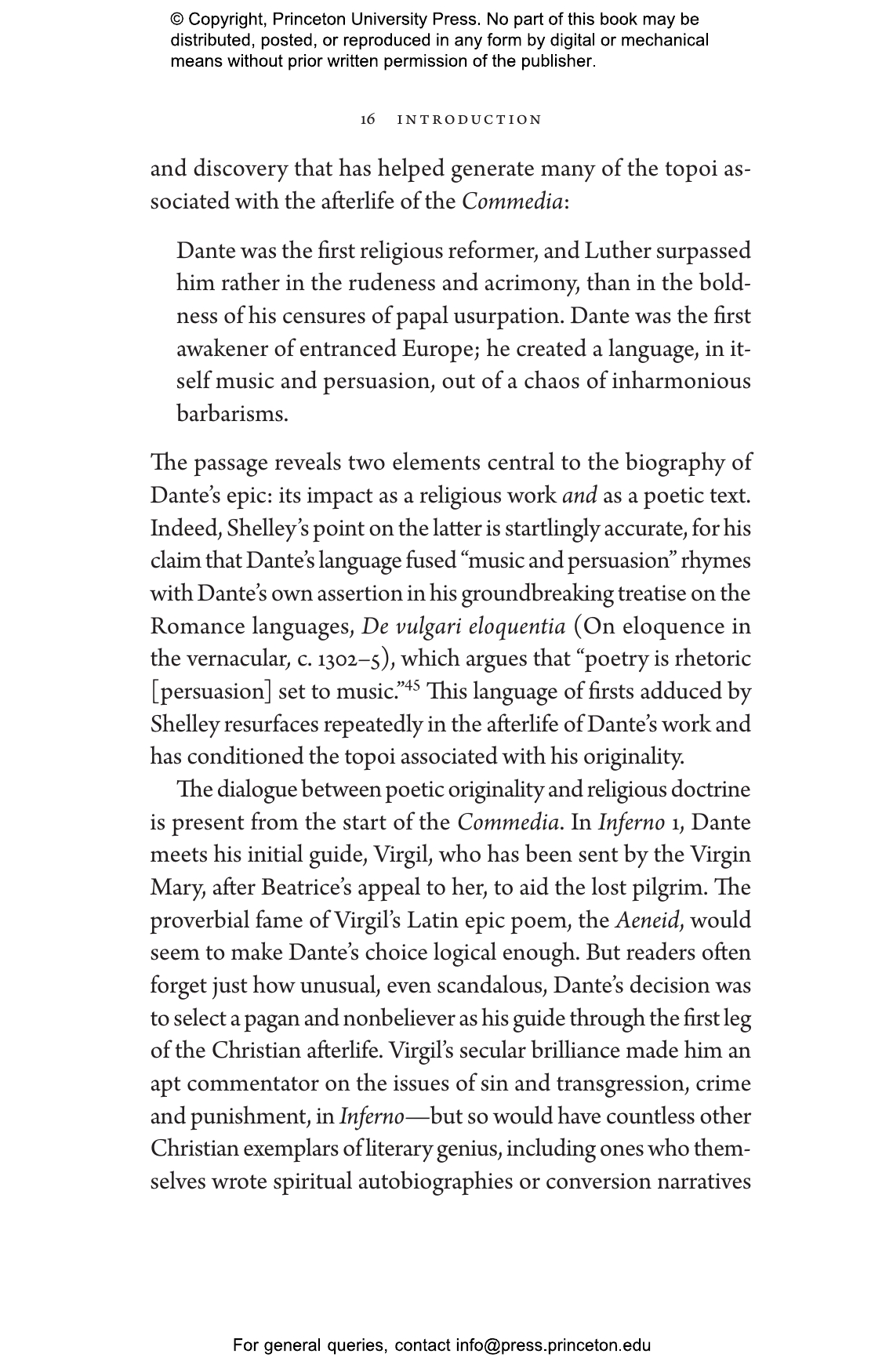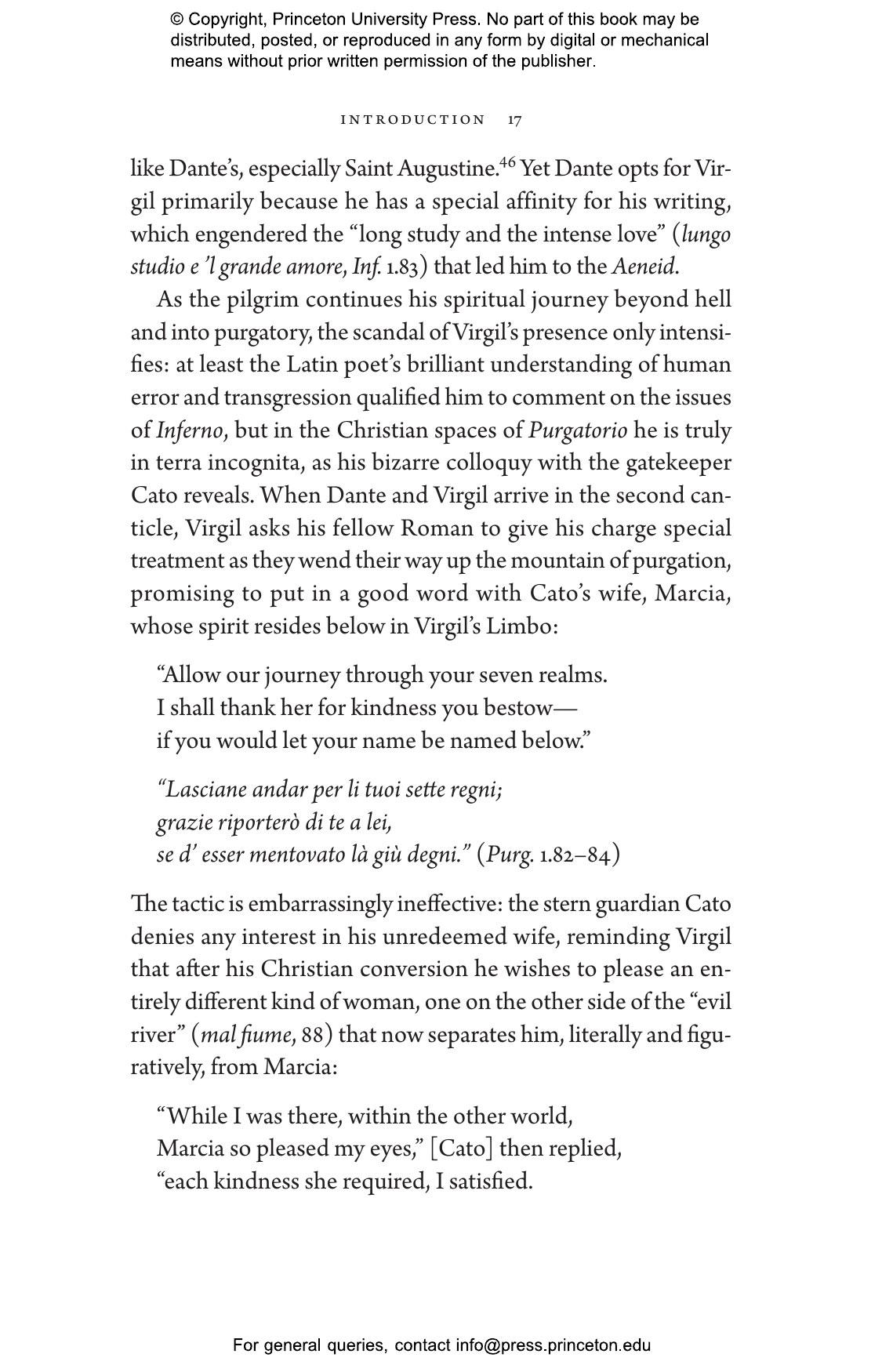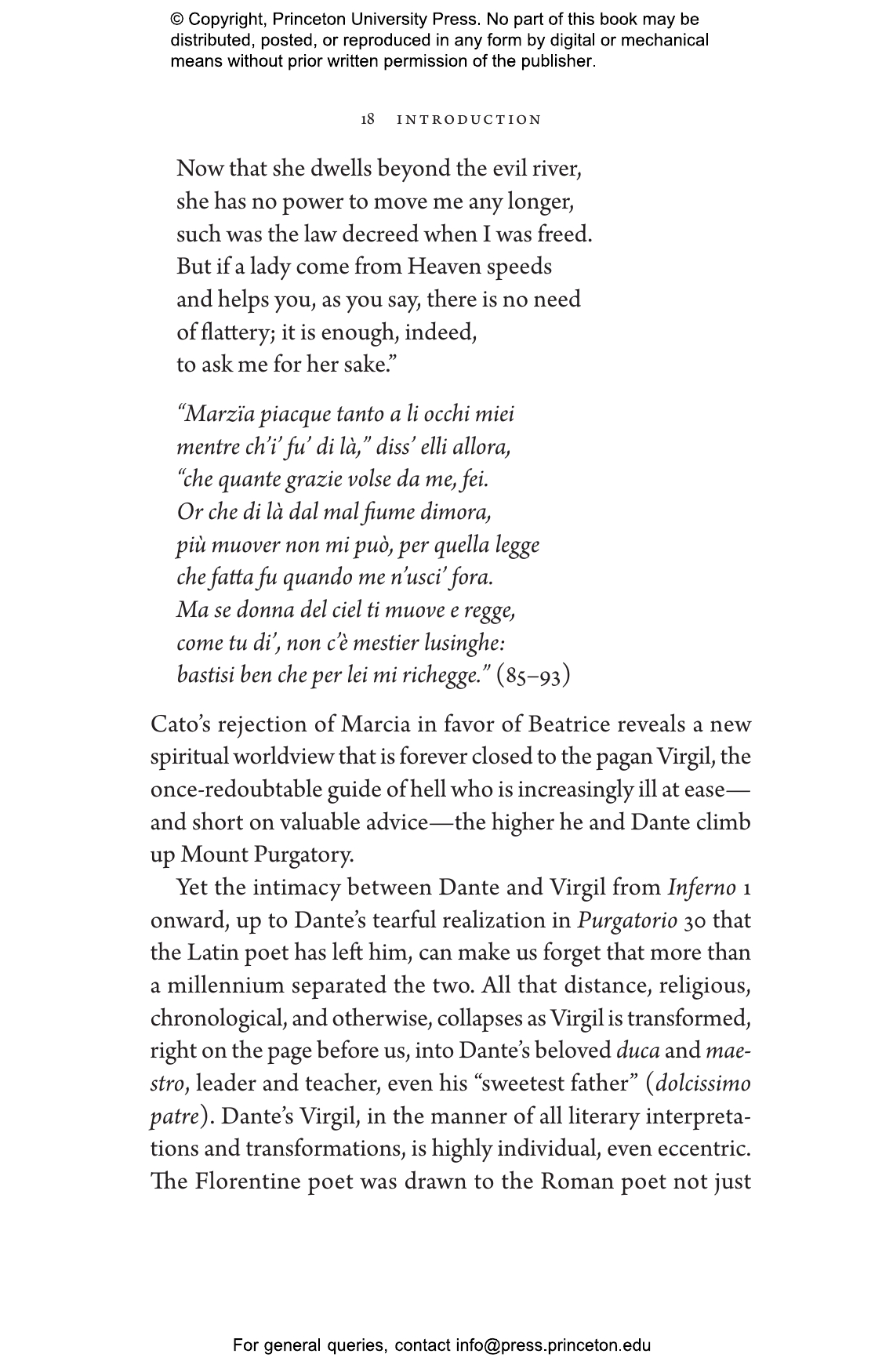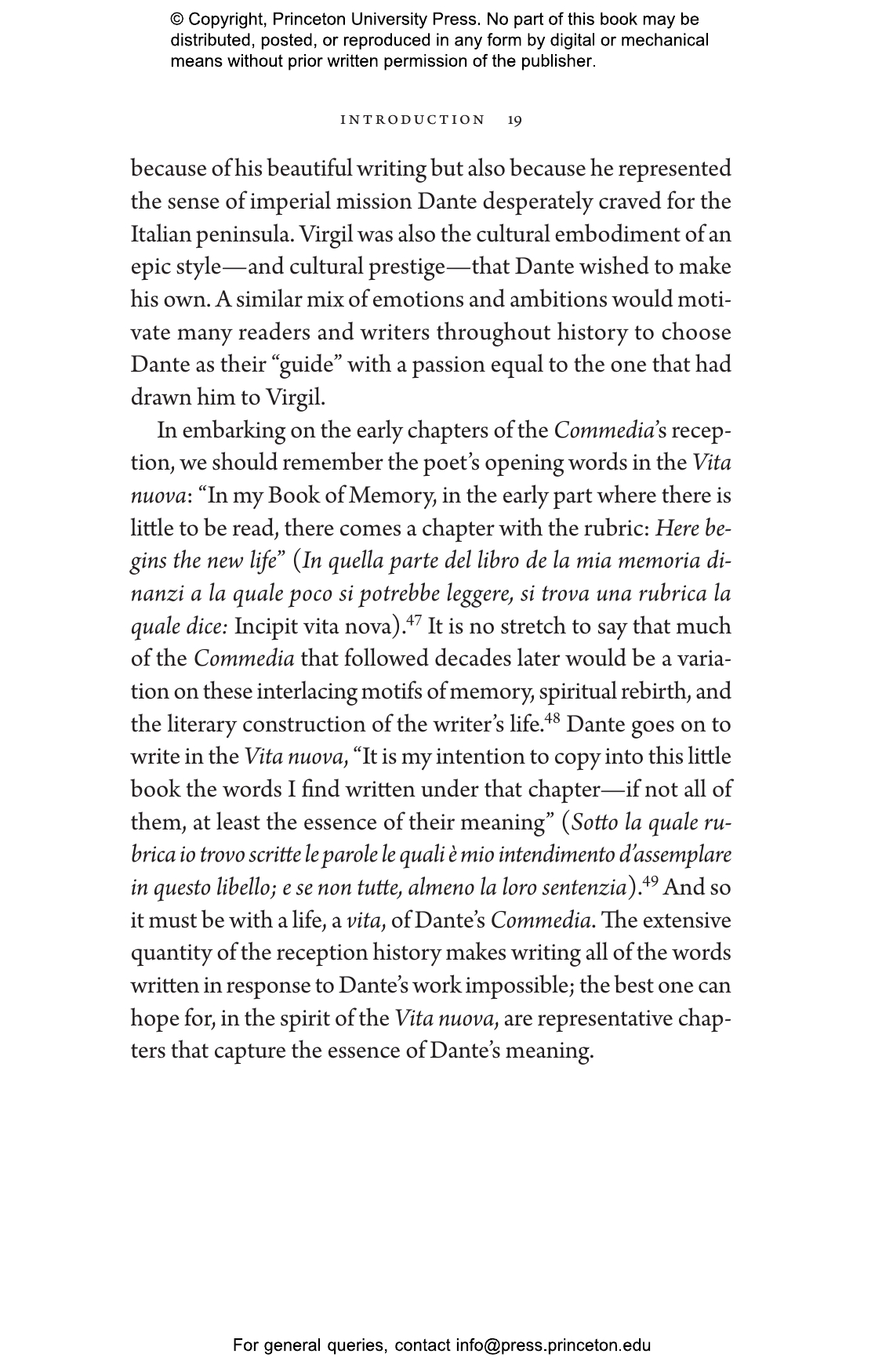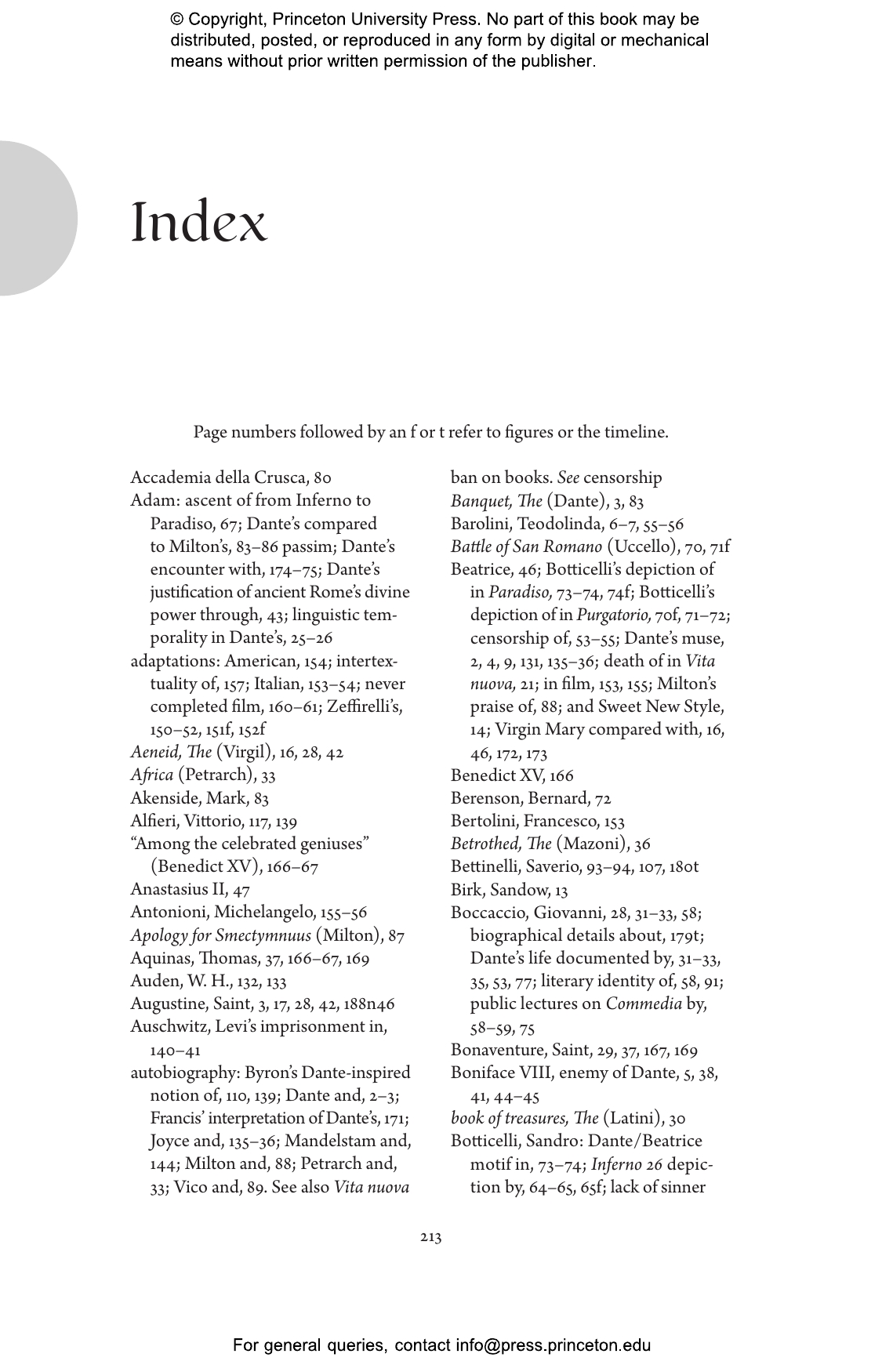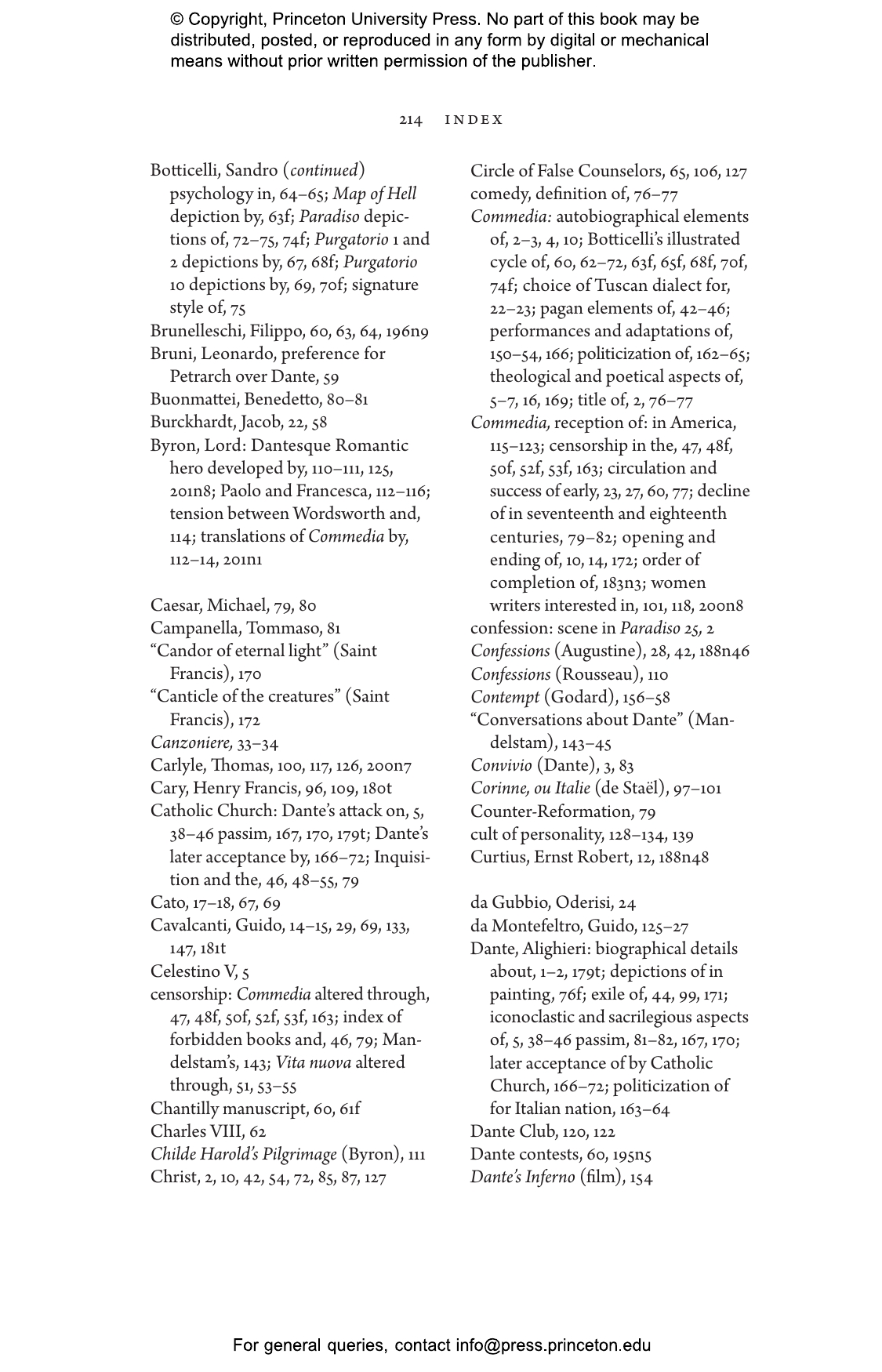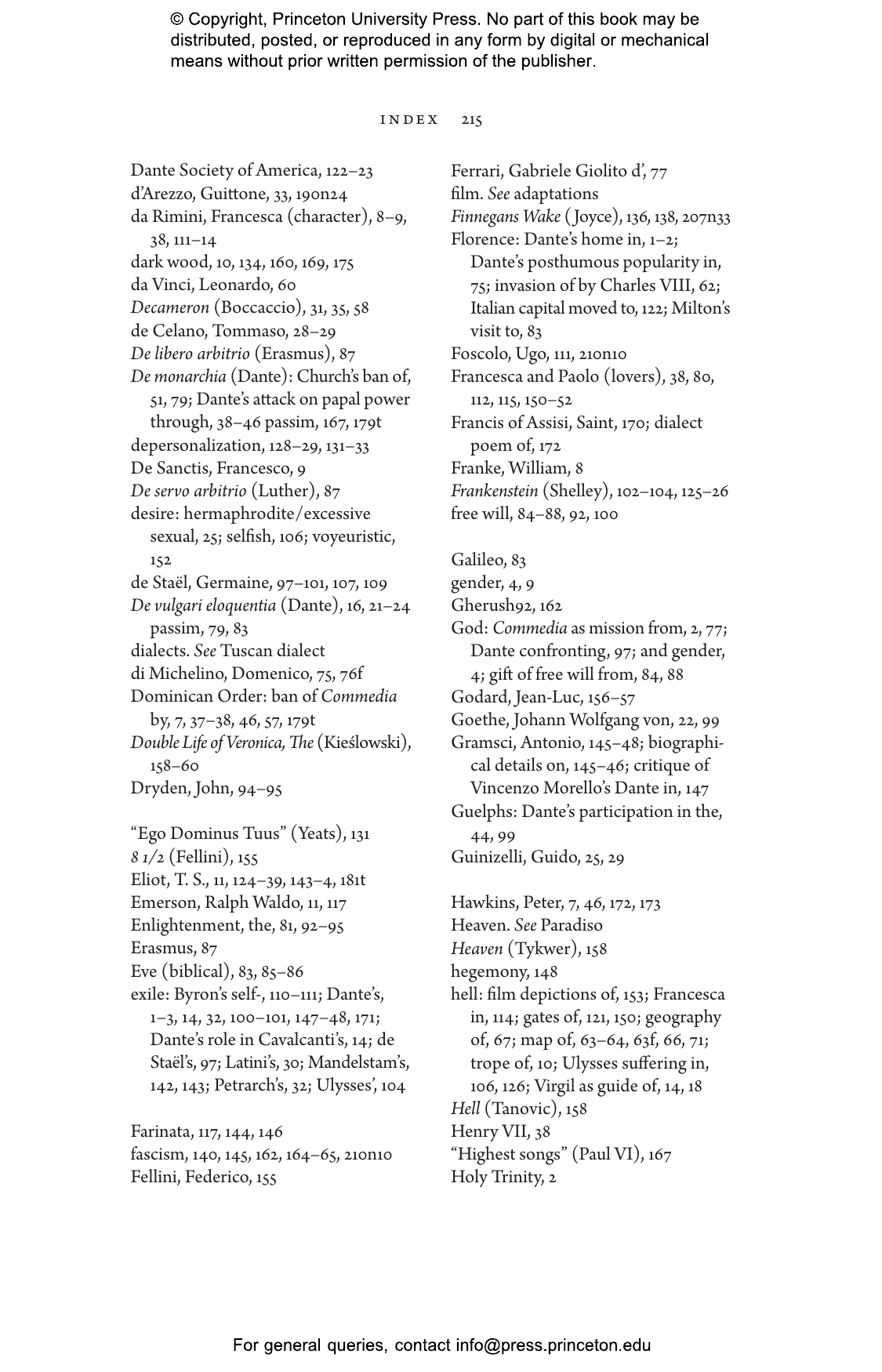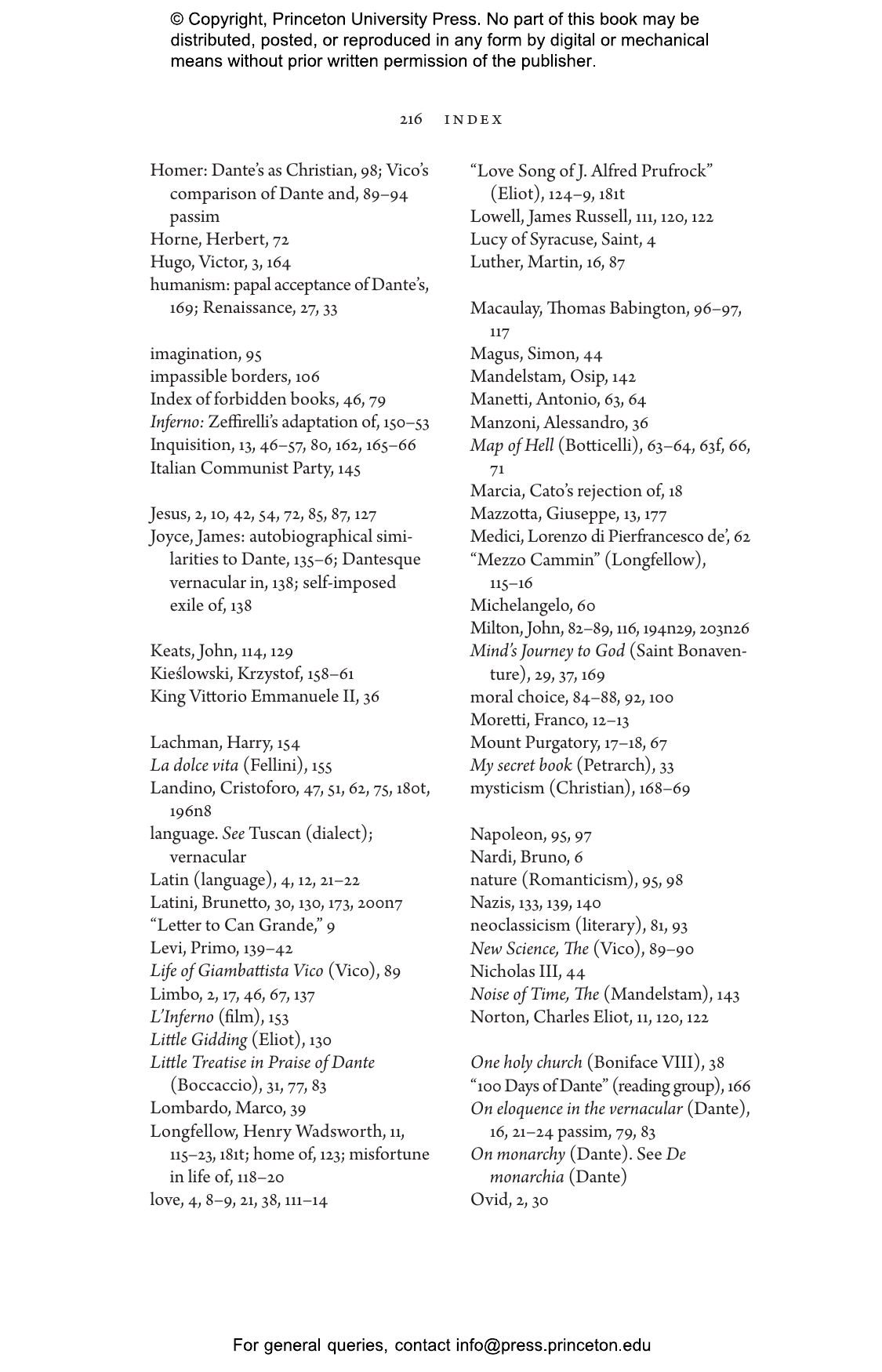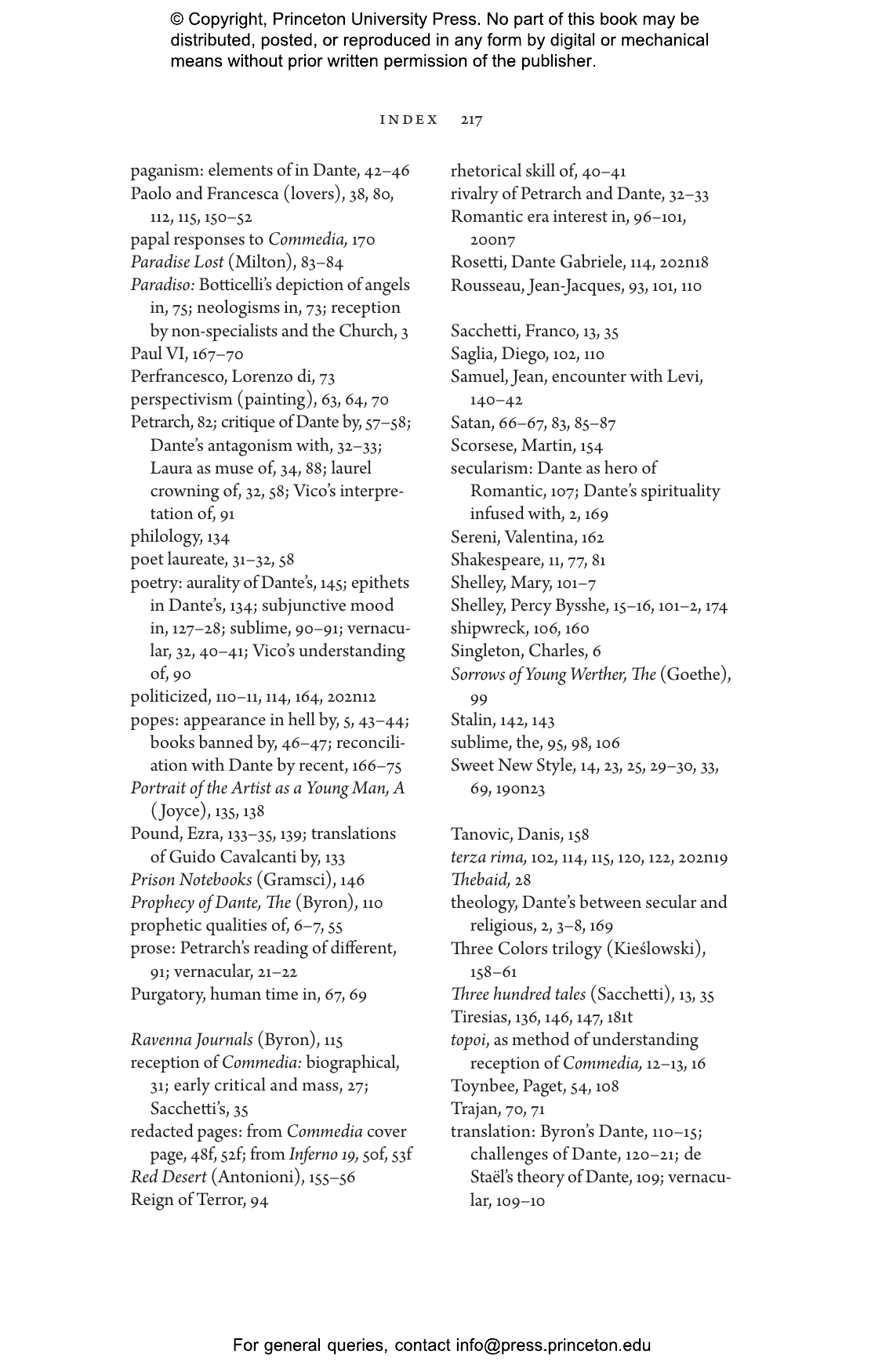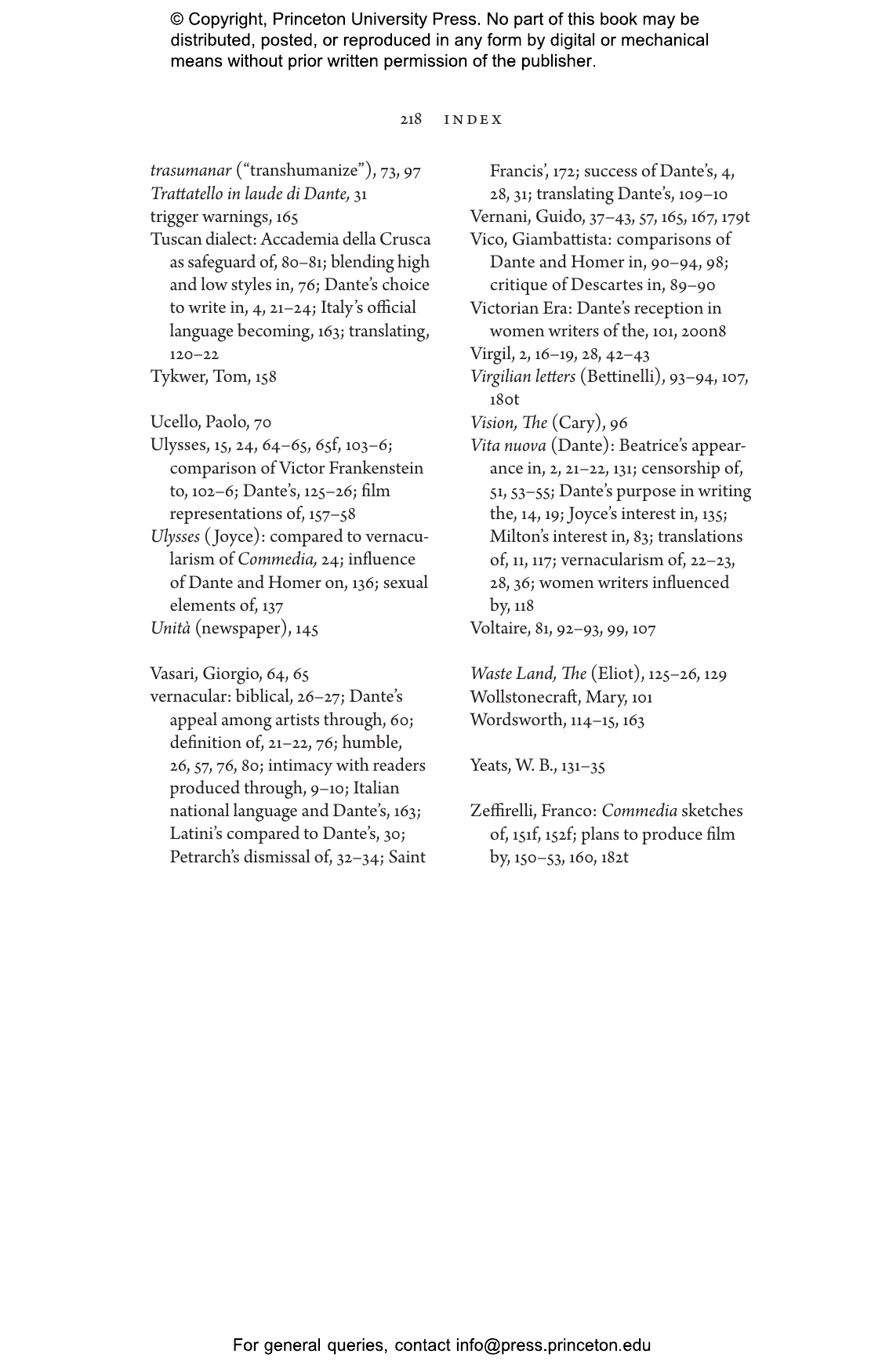Written during his exile from Florence in the early 1300s, Dante Alighieri’s Divine Comedy describes the poet’s travels through hell, purgatory, and paradise, exploring the state of the human soul after death. His poema sacro, sacred poem, profoundly influenced Renaissance writers and artists such as Giovanni Boccaccio and Sandro Botticelli and was venerated by modern critics including Erich Auerbach and Harold Bloom. Dante’s “Divine Comedy” narrates the remarkable reception of Dante’s masterpiece, one of the most consequential religious books ever written.
Tracing the many afterlives of Dante’s epic poem, Joseph Luzzi shows how it left its mark on the work of such legendary authors as John Milton, Mary Shelley, and James Joyce while serving as a source of inspiration for writers like Primo Levi and Antonio Gramsci as they faced the most extreme forms of political oppression. He charts how the dialogue between religious and secular ideas in The Divine Comedy has shaped issues ranging from changing conceptions of women’s identity and debates about censorship to the role of canonical literature in popular culture.
An intimate portrait of a work that has challenged and inspired generations of readers, Dante’s “Divine Comedy” reveals how Dante’s strikingly original and controversial vision of the afterlife can help us define our spiritual beliefs, better understand ourselves, and navigate the complexities of modern life.
"By recounting the history of the poem’s reception by readers over the centuries . . . Luzzi shows what a many-headed and irreducible beast it has always been and continues to be."—Andrew Frisardi, Wall Street Journal
"Erudite. . . . Luzzi covers the seven centuries since the [Divine] Comedy’s publication with concision and verve. It’s a fleet-footed overview of the influential poem’s eventful afterlife."—Publishers Weekly
"A learned but accessibly written essay on a centerpiece of the European literary tradition and its continuing influence."—Kirkus Reviews
"An unexpected delight. For someone ill-versed in The Divine Comedy and it’s history, this is the perfect introduction – academically sound but eminently readable."—Terry Potter, The Letterpress Project
"Very readable and concise. . . .Excellent. . . .Beautifully produced [and] recommended."—Alan Price, London Grip
"Sometimes, it is of devout necessity to have a well-written book which presents a qualified overview of an artist’s colossus of magnified, influential work – or in this instance, writing. And Dante’s Divine Comedy – A Biography, is the perfect example. . . .[An] excellent book."—David Marx, David Marx Book Reviews
"Both scholarly and accessible, this book impressively distills its author's lifetime of study and teaching, making it a rich source book for professors and students alike. . . . Highly recommended."—Choice Reviews
"The prose is faithful, scholarly and sensitive to the subtle nuances of meaning and richness of reference in Dante’s epic poem. . . .This beautifully illustrated book brings together all three volumes of Dante’s poem, describing his travels down to the circles of Hell, up over the mountain of Purgatory and his ultimate ascension through the celestial spheres of Paradise. Featuring an incisive introduction by Simone Marchesi, a glossary and stunning illustrations by acclaimed artist Roberto Abbiati, this handsome edition of The Divine Comedy introduces a new generation of readers to what is perhaps the preeminent achievement of Italian literature."—The Florentine
"Joseph Luzzi’s Dante’s Divine Comedy: A biography gives a succinct sketch of Dante’s own afterlife. . . . His later chapters especially give a rich sense of Dante’s presence in different forms, genres and media."—Harry Cochrane, Times Literary Supplement
"An informative and engaging tour de force that shows how the Divine Comedy has been able to survive the test of time and speak to different ages and authors. . . .Joseph Luzzi’s book is a precious contribution that reminds us that the Divine Comedy has attracted different ages and diverse poetical and religious sensibilities throughout the centuries. This living, breathing masterpiece is the reason why ‘we still study a poet who died one thousand years ago’."—Barbara Pezzoti, Australian Book Review
"Dante, a complicated man in his own right, has left us a complicated work with a complicated legacy, all of which Luzzi explores in this compelling history of the epic’s creation and reception through the centuries."—Todd Edmondson, Englewood Review of Books
"This pleasurable, erudite book explores just how variously and often Dante’s great poem has been remade by its changing cultural context in the 700 years since its completion. So elegantly written and thoughtfully informative is it that I read it almost in one sitting."—Fiona Sampson, The Tablet
"Joseph Luzzi makes a compelling case that a great work of art can lead a life every bit as dramatic, chequered and instructive as the artist who made it. . . .His book is no hagiography but a kind of love letter, a reminder that great works are not merely studied or analysed, but encountered."—Lola Salem, The Critic
"This is a really good book, informative, interesting, sound, with excellent notes for further investigation."—Corinna Lonergan, Irish Catholic
“Celebrating Dante’s profound influence on a pantheon of other cultural icons—from Boccaccio and Botticelli to Mary Shelley, Gramsci, Fellini, and Pope Francis—Luzzi shows why the Divine Comedy matters as the greatest poem, at once spiritual and secular, in the Western tradition.”—Guy P. Raffa, author of Dante’s Bones: How a Poet Invented Italy


